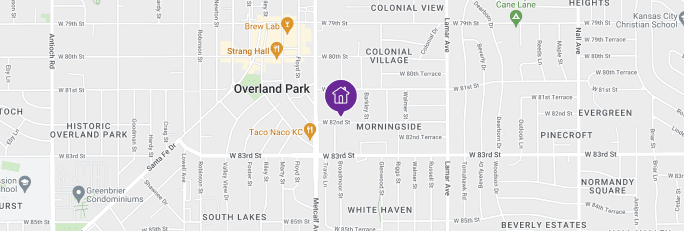Make the best senior care decision

Nursing Home Requirements for Seniors

The moment you realize your family member likely needs nursing home care is often overwhelming. Whether your senior loved one is currently in the hospital or at home, understanding what qualifies a person for a nursing home and the nursing home admissions process is important.
Key Takeaways
- Nursing home services are ideal for seniors with serious or debilitating conditions. This includes anyone who needs frequent medical supervision and round-the-clock care.
- Nursing facilities require certain documents for admission. These documents include physician’s orders, medical history, admissions paperwork, and more.
- Nursing homes require a financial assessment. This process ensures that the patient has the means to pay for care.
- Medicaid can sometimes help defray nursing home costs. Eligible seniors may be able to receive government assistance to help pay for nursing home care.
“The process is not always simple, and it can be tedious,” says senior care professional Mark Pavlovich, owner of Yardstik Behavioral Analytics and member of the workforce and customer experience committees at the American Health Care Association. “But it can be easier if you know who you need to talk to and are aware of the documents needed beforehand.”
Learn more about nursing home qualifications, what documents to bring, and who to talk to when filling out paperwork for government programs, like Medicare or Medicaid.
What qualifies a person for a nursing home?
Nursing home services are generally intended for seniors with debilitating health issues or serious conditions that require frequent medical supervision and round-the-clock care. In order to be admitted to a nursing home, a senior needs to meet the state’s criteria for nursing home care, and any medical conditions must be documented and confirmed by a physician.
State requirements for nursing home placement
The requirements for nursing home placement generally vary by state. The Centers for Medicare & Medicaid Services (CMS) requires states to follow some general guidelines. However, states retain the flexibility to create their own assessments within CMS’s rules.
Therefore, it’s possible for a senior to meet nursing home admission requirements in Iowa or Kansas, but not in California or New York. Be sure to contact your local Medicaid or government county agency to learn more about your state’s specific nursing home testing standards and how to qualify for a nursing home.
Assessment of health care needs
To verify that your loved one meets state requirements for nursing home care, a physician will assess their health care needs.
If your aging relative is currently in the hospital, attending staff will likely complete the assessment during the hospital stay. If your loved one is not currently in the hospital, you can make an appointment with their primary care doctor.

Need a nursing home? We can help.
Our free tool provides nursing home options based on your unique situation.
Some states may provide free health care assessments for seniors. For example, the Maryland state government offers the Adult Evaluation and Review Service (AERS) program. An AERS evaluation is performed by a nurse or social worker and can identify whether a senior meets nursing home qualifications or would benefit more from other long-term care options.
If your loved one requires day-to-day care, but does not meet requirements for nursing home placement, they may be a good candidate for an assisted living community.
Documents required for nursing home admission
Before your loved one is admitted to a nursing home, you will need to provide the facility with the documents listed below. The first five items on this list are completed by hospital staff or by your loved one’s primary care doctor.
- Physician’s order for admission to a nursing home. This order is similar to writing out a prescription. A must confirm the patient needs to nursing home-level care.
- Physician’s order for medications and treatment. Your loved one will have a new physician and caregivers at the nursing home. In order to provide care, they’ll need orders from a primary care physician or hospital staff.
- Medical history and physical examination. The nursing home’s attending physicians need up-to-date information about your loved one. The primary care physician should perform a physical exam and report to provide current medical history.
- State-required form. Every state has a required form for nursing home admittance. It certifies that a patient meets state nursing home qualifications. It also means the person’s medical needs can be fulfilled by a nursing home. Either the hospital or the primary care physician will fill out and sign this form. It can be obtained at any nursing home in the state where your loved one will be receiving care.
- Health care tests. Nursing homes are required to offer flu shots, pneumonia vaccines, and tuberculosis (TB) tests within three days of admission. If newly admitted patients have had these services recently, the nursing home may ask for proof.
- Completed admissions paperwork. Paperwork can usually be filled out before or on the day of admission. Although the process varies depending on the individual community and a senior’s state of residence, it’s common for essential forms to be filled out at the facility with a staff member. The patient or their agent, the legally responsible party under Power of Attorney, will sign their name several times after learning about nursing home policies, responsibilities, legal certificates, and the cost and care provided. Because nursing homes are regulated by state and federal laws, the community needs written proof the patient learned this information. Part of the paperwork includes the patient’s consent to be treated. As part of the application process, you may need to bring your loved one’s Social Security card, documentation related to Medicare or Medicaid, and insurance cards.
The process of admitting a loved one into a nursing home can take several hours or more, says Pavlovich. As part of the nursing home admissions process, community staff may also ask for other documentation:
- Power of attorney (POA) papers
- Do not resuscitate (DNR) paperwork
- End-of-life care wishes
- Dietary requirements
- Medical orders for life-sustaining treatment (MOLST)
- Living will
Nursing home financial assessment: What questions will I be asked?
Nursing homes are obligated to determine if incoming residents meet the criteria for any state or federal funding. This process is similar to someone providing financial information to get a mortgage.
This step ensures each patient has the means to pay for nursing home care. The patient and their family will need to disclose financial information and complete paperwork to answer questions such as the following.
- Is the patient currently enrolled in Medicare (Part A or B) or Medicaid? Do they plan to apply?
- Does the patient have supplemental insurance?
- Does the patient receive VA benefits, railroad retirement, SSI funds, or a private or government pension?
- What are the patient’s assets, including cash, checking and savings accounts, stocks, bonds, CDs, trust funds, and real estate holdings?
- Does the patient have any paid-up life insurance, burial insurance, or long-term care insurance policies?
- Has the patient transferred assets in the last 3-5 years?
- What’s the patient’s current living situation?
- How much is their current monthly rent or mortgage payment?
Does Medicare cover nursing home costs?
Medicare is a federal health insurance program that provides coverage for individuals 65 and older, as well as younger people with certain disabilities. A majority of older adults in the U.S. rely on Medicare for preventative services, outpatient care, and prescription medications.

Nursing homes near you
There are nursing homes in your area
Medicare doesn’t cover long-term help with activities of daily living or care in a nursing home. However, it may provide coverage for up to 100 days of short-term rehabilitation following a stroke, hip fracture, or other health event that resulted in a hospital stay of three days or more.
Regardless of whether Medicare pays for your nursing home stay, it will likely cover doctor services, medical supplies, and prescription drugs while you’re there, although the exact coverage depends on your Medicare plan.
Does Medicaid cover nursing home care?
Medicaid is a federal program that extends health coverage to low-income individuals. Standards for income thresholds and asset limitations vary depending on each state. Additionally, seniors can qualify if their state considers them “medically needy,” meaning that they have significant health conditions and expenses.
To qualify for nursing home care covered by Medicaid, your senior loved one must have a medical need. This requirement is consistent across the country; however, each state defines “medical need” in its own way. Contact your state’s Medicaid agency to learn more about which health conditions are required to qualify. Admissions staff at Medicaid-certified nursing homes will also have information about the qualification process.
An elder law attorney or social worker can be a helpful partner in the Medicaid application process, determining eligibility, and guiding seniors on how to qualify for a nursing home covered by Medicaid. The entire application can be rejected and sent back if any information is missing, says Pavlovich.
The Centers for Medicare and Medicaid Services created a Nursing Home Toolkit to explain nursing home Medicaid benefits to providers and beneficiaries and can help you learn more.
Nursing Homes Near Me
Find a nursing home
There are <strong></strong> nursing homes near ,
View nursing home
The information contained in this article is for informational purposes only and is not intended to constitute medical, legal or financial advice or create a professional relationship between A Place for Mom and the reader. Always seek the advice of your health care provider, attorney or financial advisor with respect to any particular matter and do not act or refrain from acting on the basis of anything you have read on this site. Links to third-party websites are only for the convenience of the reader; A Place for Mom does not recommend or endorse the contents of the third-party sites.